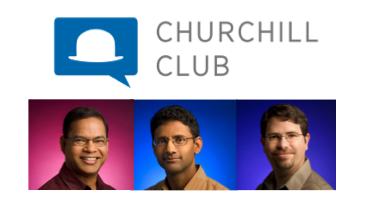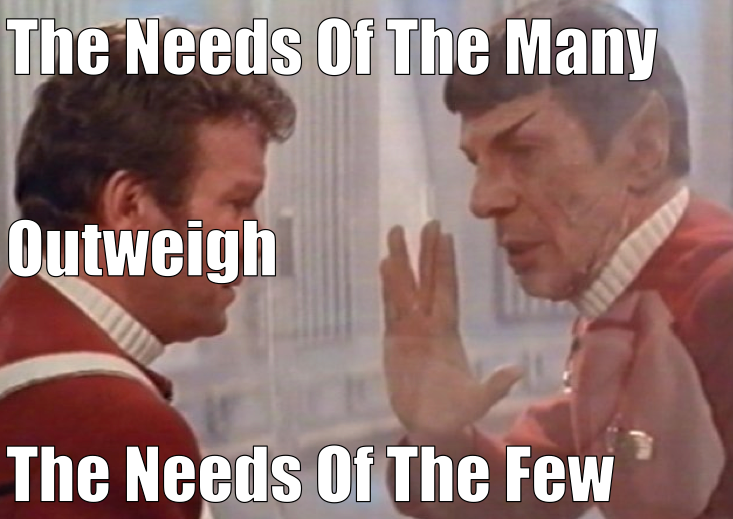I had the opportunity to attend last night’s Churchill Club event held at the Computer History Museum that brought together Amit Singhal, Ben Gomes and Matt Cutts.

Inside Google’s Search Office marked the first time the three have appeared together. If that wasn’t enough, the event was moderated by Danny Sullivan who is both incredibly smart about search and a gifted moderator.
For someone who follows search closely, this was a can’t miss event. Thanks to Rick Bucich (who also helped this introvert mingle) for the heads up on the event.
This was not an SEO conference or event. Very few in the audience were hoping to capture that ‘gotcha’ moment. Instead, we were given a more human look at how these three Googlers think and feel about their work.
Passion
All clearly have a passion for search. Amit, in particular, was animated and visibly enthusiastic about the subject matter, at times perched on the edge of his seat as he told a story or answered a question. Matt was his usual self, mixing down-to-earth advice with a goofy sense of humor. Ben, the most reserved of the bunch, lit up when talking about specific challenges faced and overcome.
I saw Amit bristle at the idea that AdWords spending influences organic search. I watched Matt grimace at the mention of Eli Pariser’s Filter Bubble and the conclusion that Google was doing something untoward in personalizing results. These things generate a response because they care.
What they care most about is doing right by the user. This often sounds trite or contrived. Some claim that this altruistic goal is just a facade for greed. But I don’t think any of them would dispute that Google prospers when they do right by the user. They strongly believe that one leads to the other.
As an aside, I’m not sure who would win a gesticulation war between Matt and Amit.
Testing
We all know that Google does a tremendous amount of testing. Amit described the process Google goes through in approving an algorithm update. It reminded me a bit of Schoolhouse Rock’s How a Bill Becomes a Law.

Many changes are tested but only a few make it through the entire process and result in an algorithm update. Based on the ballpark numbers mentioned (20,000 changes and 500 updates), less than 3% of the tests result in an algorithm change.
Relevance
One of the things I’ve written about previously is the subjectivity of relevance and quality. One man’s trash is another man’s treasure. This was the first time I heard Google address this issue head on. While they believe that their scientific method allows them to come closer to an objective relevance they know it won’t be perfect.
Matt talked about the fact that each algorithm update will make some certain amount of queries better but some much smaller amount of queries worse. The idea that each algorithm update will only have beneficial results is … fantasy.

I’ll paraphrase another quote referenced by Danny and Ben. Two humans will agree on relevance only 80% of the time. If you looked at that same result a year later, you may not agree with yourself, let alone someone else. The implication (one I happen to agree with) is that relevance is a moving target.
These statements showed a humility that I had previously found lacking. Google should rightly be proud of having the best search algorithm on the planet, but it was refreshing to hear them admit that it was an imperfect work-in-progress. Google is on the cutting edge of this field and they continue to work (hard) at getting it right.
Speed
Speed was a central theme in the discussion of search innovation. It got me thinking more about measuring quality and relevance based on the amount of time it took from query to click.
Obviously Google has worked to reduce that time through Google Instant and, most recently, Instant Pages. But might Google score search results on how quickly they satisfied query intent? That doesn’t mean the user clicked on the first result, it simply means that the results presented yielded the best user result as measured in time to productive click.
Think about that for a moment. Is Google less concerned with getting rank right and more concerned with optimizing for quick knowledge transfer? Clearly having the right listings at or near the top matters, but perhaps a combination of listings is most effective. We focus on the percentage of clicks by rank, but that may not be the dominant metric Google is using.
Social
Google seems both excited and cautious about how it integrates and uses social signals. Amit reduced social to ‘who knows who and about what.’ But there’s a lot more to be done here and identity is clearly on their mind as a way to strengthen this signal.

In addition, I believe Google is a bit stunned at the quick adoption rate of Google+. I’m not saying they didn’t think it would be successful, but it feels like they didn’t expect these types of numbers. At this stage, I think they’d like G+ users to take a breath and provide them some time to iterate.
Googlers
This was also a fun event for me because I met a few more Googlers. I got to talk with Sagar Kamgar and Jeremy Hylton about rel=”author” and how it may change moving forward, met Jim Haljun and chatted briefly with both Amit and Ben. And I was happy to reconnect with Matt after missing him at this year’s SMX West.
I’m not a Google apologist. I think my writing makes that clear. But I find it difficult to stomach claims that Googlers are elitist liars who feed the SEO community misinformation. This irritates me because nearly all the Googlers I’ve met (online and in person) have been smart, friendly and very generous with their time.
Future

Amit and Matt both shared their visions for the future of search. In five years Amit would like to see search behaving more like the ship’s computer on Star Trek. He’s keen on voice search and the growing impact of mobile devices.
Matt’s vision was limited to the next few years where the use of geo-location, mobile devices and other contextual data could allow Google to prompt users. Matt would never forget to pick up cat food again! He’d also like the voice to text ability to be refined so he can respond to email on his drive home. “That shouldn’t be that hard. I’ll file a bug when I get home.”
Beyond these predictions I was caught up in their passion and reminded of why I love search: it’s full of amazingly talented people with inquisitive minds working on something that is constantly evolving.
The Next Post: Comment Censorship
The Previous Post: Computational Humor

6 trackbacks/pingbacks
Comments About Inside Google’s Search Office
// 11 comments so far.
David Jenkins // August 05th 2011
So three of the top Google people come out to play and no-one tackles them about Panda? They don’t even speak about Panda? Probably the most cataclysmic event in recent times and no mention?
I presume they only agreed to appear in public on certain conditions . . . no mention about Panda!
AJ Kohn // August 06th 2011
David,
As Dan points out, Amit did touch on Panda and quality algorithms. Even if they didn’t, that would have been fine. This wasn’t a forum to attack or grill these individuals. The information about Panda has already been communicated to the extent possible. While I would prefer that Panda be applied at the page level, I understand the constraints and reasoning behind their current efforts.
Dan Petrovic // August 05th 2011
In 21st minute of the video they mention Panda and quality algorithms and Amit Singhal talks about it (in simplistic terms).
Ian // August 06th 2011
Great write up. They seem to have the right intentions which is all we can really expect from a business. Keep up the good work Google!
AJ Kohn // August 06th 2011
Thanks for the kind words Ian. And I agree, they do have the right intentions. Sometimes the road to hell is paved with good intentions! But I was heartened to hear that they too understand the nuance around relevance and the continuing progress necessary to improve.
ES // August 06th 2011
I think the Panda update did a lot of good to the users searching about specific things. I would like to see them do one more thing – Don’t give higher preference to exact match URL’s. Because of this, lot of low quality websites are springing up with just a couple of pages of content, but still making it to the top of search results!
AJ Kohn // August 06th 2011
ES,
Yes, exact match keyword domains is a troubling issue. Many of these sites escaped Panda because they didn’t have a large enough corpus of content to be impacted. At least that’s my own read on the situation.
So it’s not that these sites got more preference they simply weren’t impacted by Panda. In many instances there may not be many sites left to replace those that were impacted by Panda. So what we’re left with are … sub-standard exact match keyword domains. Not always but I certainly seem to run into them more often. It’ll be interesting to see how Google deals with this moving forward.
Manuel // August 07th 2011
Is anyone else tired of the way Matt Cutts, Amit, and other Google reps pretend to give specific answers instead of really telling people what they need to know to make their website successful? Every time Cutts talks about how Google’s algorithm works, he makes vague generalizations and says “this is how it works MOST of the time” but leaves the door open for other situations that he doesn’t address.
Kind of frustrating.
AJ Kohn // August 08th 2011
Manuel,
It can be frustrating but I actually believe they’re being quite generous with what they’ve decided to share. Because if they reveal any more, if they give specifics, it makes the algorithm that much easier to game.
If they revealed how a certain signal worked, that signal would likely become nearly useless in a matter of months. If we know what and how Google is measuring something, that something will suddenly change dramatically based on our reaction to that measurement.
How Google Works // August 10th 2011
When I saw how long that video was – way over an hour, I said there’s no way I can take time with it.
Glad you did, AJ!
Thanks for the notes; I feel Iike I am back in college cutting classes… LOL
Ana
PS Where do you stand on using keywords in the name field? I hope I wasn’t too presumptuous by using a keyword.
AJ Kohn // August 12th 2011
Ana,
Guess what? Your posts fell into Akismet spam and I’m just now finding them. I’ll poke at GASP soon.
Yes, the video was long. It would have been tough for me to sit through the video, but instead I was actually at the event, which was a lot of fun.
As for keywords in the name field. I’m not a fan but I let them slide if the comment contributes to the discussion. I think I like the comment policy I reference in my Dread Pirate SEO post.
Sorry, comments for this entry are closed at this time.
You can follow any responses to this entry via its RSS comments feed.